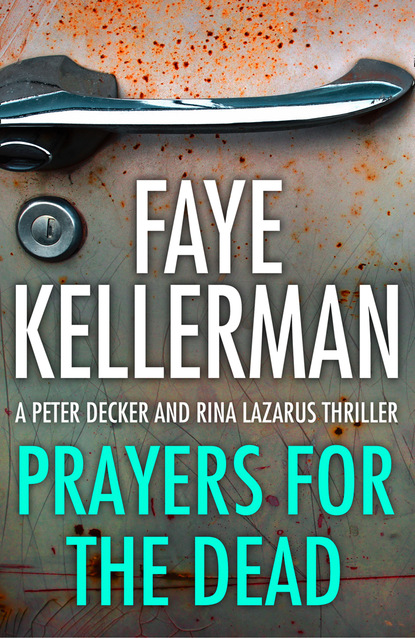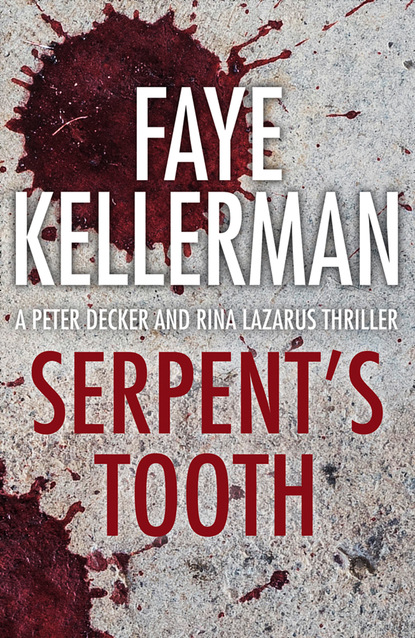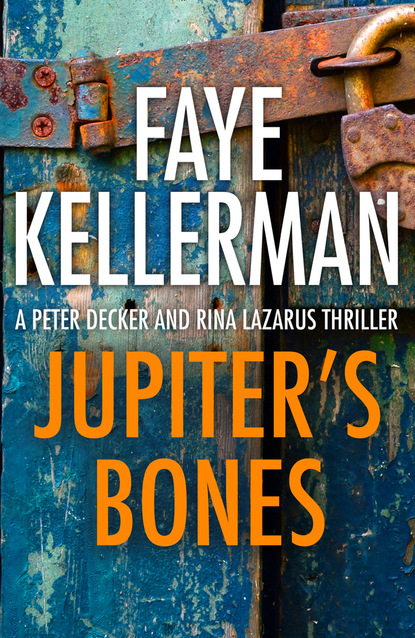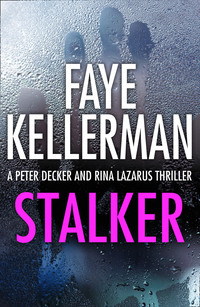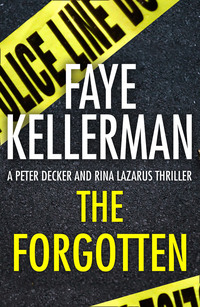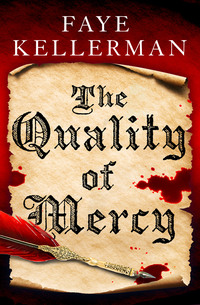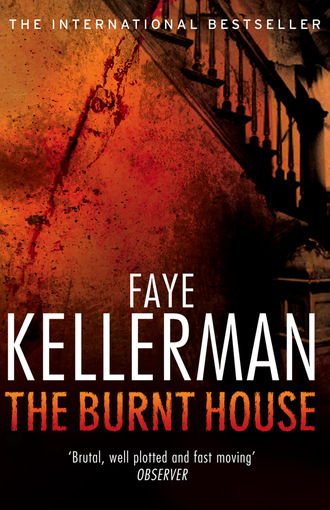
Полная версия
The Burnt House
A man in jeans, a gray T-shirt, and flip-flops held a steel watering can, bending low as rivulets poured out the spout and rained down on bright red begonias in a terra-cotta container. He was medium height, and just a smidge short of stocky. His hair was deep red and his complexion was a map of freckles. His demeanor suggested that he was unbothered by Oliver’s presence.
“Excuse me,” Oliver said. “I’m looking for David Rottiger.”
The man continued to water his plants. “I’m David.” He finally looked up with eyes round and brown. “Is it Detective Oliver or Detective Scott?”
“It’s Scott Oliver. Either one is okay. And thanks for agreeing to talk to me.”
“I’ll probably get fired in the process.”
“I certainly hope not.”
“I don’t even care anymore. You can’t imagine how tense the atmosphere has been since it happened.”
“I’m sure it’s been very unpleasant.”
“Unpleasant doesn’t cover the range of emotions that you feel when your friends die and you know in your heart of hearts it could have been you.” His lip trembled. “Where are my manners? Can I get you some water or a cup of coffee? Something stronger?”
“Whatever you’re drinking, Mr. Rottiger, sounds fine to me.”
“I have a wonderful Syrah that I opened last night. Have a seat, then. I’ll be right back.”
“Take your time. It’s beautiful out here.”
“Isn’t it, though? My one refuge is gardening, but it’s a good one.” A few minutes later he came back carrying two red-wine glasses filled almost to the brim. He handed one to Scott and the two men drank in silence.
Oliver said, “Excellent texture. Very smooth. Do you mind if we talk some inside, where it’s little more private?”
“It’s fine with me, but you know that I’m not allowed to talk about flight 1324. We’ve been instructed to refer all questions to the task force or to WestAir’s lawyers. So anything about the flight is off-limits.”
“I understand,” Oliver answered. “Actually, I’d like to talk to you about Roseanne Dresden.” He stood up. “Which unit is yours?”
“C as in crash.” He gave off a weak smile. “Morbid humor. It helps to get you through the day.”
“I’ve used it many times myself.”
Rottiger opened the unlocked front door. The place couldn’t have been more than six hundred square feet, but it was done up to perfection: high ceilings with crossbeams, gleaming bamboo floors, and lots of light. The walls were painted pale green and were hung with Japanese scrolls and minimalist pen-and-ink abstracts. Since the unit had only one bedroom and one bath, the double-wide couch made for comfortable sleeping quarters for guests, Rottiger explained. A black granite counter separated the living room from the kitchen. It was a stark surface except for an obsidian vase of bloodred roses. One of the kitchen cabinets was open, exposing a thirty-inch plasma TV. Oliver was impressed … especially with the TV.
“Is that HD?”
“But of course. When I watch baseball, I can see the players spit chaw in 3-D.” Rottiger pulled out a bar stool from under the counter and sat down. “So what can I do for you?”
“I’m sure this is going to sound a little funny, but Roseanne’s parents have contacted us. They don’t believe that she was actually on flight 1324.”
Rottiger stared out the window while sipping wine.
Oliver said, “What do you think about that?”
“I think it’s hard for them to accept some things.”
“So you think Roseanne was on the flight?”
“I didn’t say that.”
“On a small plane like flight 1324, are there enough jump seats for working flight attendants plus an extra like Roseanne?” Oliver asked.
“I’m sorry, Detective, but these are technical questions. You really should be discussing these issues with the WestAir lawyers or the task force. I can’t discuss policy with you.”
“WestAir doesn’t seem to want to talk to us.”
“I’m sorry, but I can’t talk to the police. If it gets back to management, I’ll lose my job.” He took a long sip of wine. “The only reason I’m talking to you at all is curiosity. Why is a homicide detective interested in Roseanne? Surely you don’t believe Mrs. Lodestone’s story, do you?”
“I understand you were very good friends with Roseanne. What was she like?”
“Are you profiling Roseanne?”
“In a way. Tell me about her.”
“Have you ever seen a picture of her?”
Oliver shook his head no. Rottiger held up a finger and came back a few minutes later with a photograph of eight WestAir flight attendants. He pointed to a tall willowy blonde in the middle. “That’s her.”
Oliver whistled. “Beautiful woman.”
“Yes, she was. It’s amazing that she was so naive about men.”
“How so?”
“She grew up in a small town up north, with Bible parents in a Bible community.”
“She was religious?”
“No, she gave all that up. But she still carried that farm-girl innocence. Her faith in her husband defied credulity. It took her catching him in the act for it to finally sink in what a shit he was. Even then, she agreed to therapy and mediation.”
“How was that working out?”
“Not well.” He turned to Oliver. “You don’t think she was on flight 1324, do you? You think that bastard did her in and blamed it on the flight.”
Oliver scratched his cheek. “Right now I’m just getting information, sir. And when you’re doing that, you’ve got to keep an open mind. What do you think?”
“Put it this way. The condo they were living in was in her name. So was the bank account, the car, the furniture, and just about everything of value that they owned. After catching him red-handed, Roseanne started talking about divorce. Poor little Ivan. Now how was he going to pay his lap dancers if he had to make rent and car payments, too?”
“Lap dancers?”
“Ever heard of Leather and Lace?”
Oliver faked naïveté.
“It’s a ‘gentleman’s’ club.” Rottiger made quotes with his fingers. “I have a good friend who works there as an exotic dancer.” When the man saw Oliver’s facial expression, he said, “It’s not like you think. She’s only doing it for the money.”
“That’s usually why girls lap dance,” Oliver said. “Anyway, what about her?”
“She met Rosie and Ivan at one of my famous patio parties.” A look of disgust washed over his face. “When Roseanne wasn’t looking, Ivan came on to her.”
“Does your lap-dancer friend have a name?”
“She does but I’m not comfortable giving it to you, right now. Especially after what happened with Ivan. I work very hard at putting my parties together. I don’t need idiots like Ivan making my friends feel uncomfortable. But there’s a punch line to this.”
“Go on.”
“Two weeks later Ivan shows up at Leather and Lace, stuffing twenties into my friend’s thong.”
“And did the relationship between the two of them … uh, improve?”
“That isn’t the point!” Rottiger bristled. “The point is he was spending lots of money on his bad habits. Roseanne’s money, no doubt. She finally had enough!”
“So Roseanne was contemplating divorce.”
“Yes. Finally.”
“And where was Roseanne living while she thought about divorce?”
“In her condo.”
“And Ivan? Where was he living?”
“They were still living together, but I think she was about to kick him out. She told me if anyone was going to temporarily move out, it was going to be him.”
“Because the condo was in her name.”
“Exactly.”
“Didn’t her husband have a job?”
“Some kind of low-level job in finance. I know they were living off Roseanne’s money as a flight attendant because Rosie complained about it.”
Oliver thought that it would be helpful to get into Roseanne’s bank accounts to see whose signatures were on the household expense checks. Maybe Ivan was skimming money from his wife’s bank account and that was the last straw. So far, the only thing working against Ivan the Terrible was bad behavior. And if that was a crime, Oliver was in deep, deep shit.
Rottiger said, “You know that the bastard is going to get a lot of insurance money now that Rosie’s dead. She had a life insurance policy from the company, and on top of that, I’m sure he’ll get a settlement from the airline. She was worth a lot more to him dead than alive.”
Oliver said, “I know that, but I can’t arrest Ivan for getting a windfall from his dead wife. What I need to know as a homicide detective is simply this: Was Roseanne Dresden on that plane or not?”
“I don’t know,” Rottiger said, “and that’s the truth.”
Oliver checked his watch. He had just enough time to clean up and make it to the restaurant. He set his wineglass down on the sleek bar and then handed his card to Rottiger. “You’ve been very helpful.”
“If you say so.”
“I know you can’t talk policy, but it’s my understanding that a flight attendant can hop an airline without a ticket if she’s on her way to work.”
“That’s certainly true.”
“We know that Roseanne wasn’t a flight attendant on 1324. We were told that she was on her way to San Jose to work. If you happen to stumble across anything that would definitely put Roseanne Dresden on flight 1324 or any paperwork that assigned her to work in San Jose, I’d love to know about it.”
Rottiger stuck the card in his jeans pocket. “I don’t see how that would happen. I try to mind my own business and do my job.”
“Same with me, Mr. Rottiger, but some people don’t want me to do my job. For instance, take your airline. My partner, Detective Dunn, and I asked WestAir about assignment sheets. We didn’t get anywhere and there was no one in the task force who could help us. We were told to fill out papers and just wait. Now, how am I to close a case if I’m being shined on like that?”
“It doesn’t surprise me. But you have to understand that WestAir is in a chaos right now.”
“Let me ask you one more thing.”
“Sure.”
“Is it possible for Roseanne to suddenly hitchhike on a plane without a job assignment and without a ticket?”
“It’s not procedure, but … if she made a sudden decision to escape from the bastard, and she had a good friend working the flight, maybe someone would bend a rule, let her hitch a ride, and clear it up later.”
Oliver nodded. “Thank you for your time, Mr. Rottiger. If I have any more questions, can I feel free to call you again?”
“Absolutely, as long as you’re discreet. WestAir can’t find out about our chat.”
“No reason they should know.”
A tear fell down Rottiger’s cheek. “She was a wonderful woman and a good friend, Detective. All of them who worked flight 1324 were wonderful. We were like a family. I am happy to help in any way I can as long as my job’s not jeopardized.”
Oliver cleared his throat. “In that case, I do have one more favor.” He pored through his notes. “Uh … could I have the phone number of your lap-dancer friend. I’d like to talk to her about Ivan Dresden. Maybe she didn’t like him initially, but money makes strange dancing partners.”
Rottiger dug out Oliver’s business card. “I have your number, Detective, and I’ll give it to my friend. If she’s interested in talking to you, she’ll know where to find you.”
Oliver wasn’t perturbed by his refusal to give out the lap dancer’s phone number. If need be, he could always visit Leather and Lace, flash his badge, and ask for Ivan’s friend. And the dive would cooperate because Oliver was a detective and that held sway. Besides, though he wasn’t a regular, he wasn’t unfamiliar with the establishment.
7

MARGE’S EAR WAS hot and sore from being pressed against the receiver for so long. On top of that, she’d made the mistake of wearing the new pearl studs that Will Barnes had given her, making phone work extremely uncomfortable. But they were so pretty and she was so thrilled with the gift that she couldn’t help herself. The voice on the other end of the line was giving her a hard time.
“Yes, I know that Roseanne Dresden’s name is on the victims list,” Marge explained. “I’m asking you if she had always been on the list or was her name added later because I know that lists are revised when more information is given … no, don’t put me on hold … Shit!” She slammed down the phone.
Decker happened to be passing by her desk. “Everything all right?”
“I hate being sent into the electronic void.” She checked her watch. “I’m on lunch hour. I think I’ll pay our illustrious paper a visit.”
“How’s your afternoon?”
“Not bad.”
“In that case, since you’ll be in the area, pay a visit to North Mission Road. It’s been a while since we’ve talked to the recovery team. Find out how many bodies on the list they’ve recovered and/or identified. Also, while you’re there you can ask them if they’ve recovered any artifacts that might have belonged to Roseanne Dresden.”
Marge had been taking notes. After he stopped talking, she stowed her pad in her purse. “Not a problem. What about you?”
“I’ve got an appointment with Arielle Toombs, the only person other than Rottiger that returned Oliver’s call. She didn’t sound thrilled, but I got her to commit to a time. Nice earrings, by the way.”
Marge’s smile was wider than her neck. “Will got them for me.”
“Will’s a nice guy.”
Marge picked up her bag and studied her boss and her friend. “You look tired, Pete.”
“All of a sudden we’ve got another epidemic of burglary reports, mainly from people who had to evacuate their homes when flight 1324 went down.”
“Yeah, Paul Deloren was talking to me about that. How many of those calls do you think are legit?”
“Not all of them, that’s for certain. We’re going through them one by one along with the insurance investigators.”
“I know we’ve had a surge of DUIs this past week.”
“That and drunk-and-disorderlies, discharging a weapon in a public place, and about twice as many assaults as normal. Bar fights, but domestic violence, too. And higher-than-normal sudden heart attacks.”
“The aftermath,” Marge said. “You, me, and everyone else are going crazy. At least this time, there’s a reason.”
THE CITY’S LARGEST and oldest newspaper had set up its headquarters in downtown L.A. over 125 years ago when the area had breathed the air of youth, with its bustling streets, its posh department stores, and the famous Angel’s flight cable car. In its fourth reincarnation, the paper had settled into its current headquarters at Spring and First streets. The structure was a paean to American Art Deco and the WPA artists who fashioned the building, with its bronze bas-relief, friezes, carving, and adornments.
Once inside, Marge stood in a rotunda, the centerpiece being a rotating globe banded by the signs of the zodiac done in bronze relief. To her right was a brief history of the paper; the left side was manned by a uniformed guard; and straight ahead, through alarmed turnstiles, was a bank of elevators. She had several names and numbers from her phones calls this morning and gave them to the guard, who rang up a couple of extensions. He announced that Mr. Delgado would be with her shortly.
Twenty-six toe-tapping minutes later—after reading a self-aggrandizing history of the paper—Marge saw a stocky man lumber through the turnstiles. He had jet black hair combed straight back, Dracula style, and dark brows gave a roof over startling pale blue eyes. His skin was tan but without wrinkles, so Marge put his age in the late twenties to early thirties. He wore a white shirt, black slacks, and penny loafers. His blue-and-graystriped tie was loosened at the neckline.
“Mr. Delgado?” Marge asked.
“Rusty is fine.” He stuck out his hand. “I’m sorry. I didn’t catch your name.”
“Marge Dunn.” She shook his hand. “Thank you very much for seeing me on no notice.”
“No problem. And this is about …”
“It’s complicated,” Marge told him. “Is there somewhere we can go that’s more private?”
“Uh, sure …” Delgado’s voice edged toward the higher side of the male range. He led her into the heart of the paper. If Marge had expected an area overrun with cubs and stringers and editors barking out commands, she was sorely disappointed. The floor was filled with open cubicles and was as quiet as a library. Placards hung from the ceiling—health, real estate, calendar, metro, home: section headings of the Times.
She tailed him down a foyer where featured photographs and prizewinning articles hung on a wall, passing a display case filled with vintage news cameras, and into a second area of open cubicles. A skeleton wearing a hula skirt and a coconut-shell bra was displayed on a pole.
“Obits,” Delgado announced.
“The place is empty.” Marge smiled. “People must be dying to get out.”
Delgado smiled back. “How can I help you?”
Marge launched into her prepared spiel, a dodge to keep the young man from asking too many questions. “I work for Ace Insurance Company, which subcontracts for other more recognizable insurance companies. I’ve been assigned to find out about the original victims list from WestAir flight 1324 that was given to your paper for publication by WestAir itself, and compare it to the final list of flight 1324 victims. Originally, Tricia Woodard did the articles on the crash. I thought she might be able to help me.”
“Tricia is out of town.” Delgado looked baffled. “Isn’t there only one list?”
Marge’s smile was gentle. “That’s what I’m trying to ascertain. I was told that the list was updated several times during the first couple of days after the crash, and that additional people were added.”
“Excuse my ignorance, but who would be added on? Isn’t there a flight list of everyone on the airplane?”
“Only those who have purchased tickets. That wouldn’t include infants and toddlers—”
“Ah, yes, of course. And you’re investigating the names because …”
“It’s routine after every crash.” Marge didn’t know if that was true, but she suspected it was. “Before insurance pays, it wants to make sure that those who were listed as dead actually died. Sometimes, especially with small infants, well, I hate to be graphic. Let’s just say it’s impossible to make identification on the bodies … or even to find the bodies can be tricky. Even with adults. Sometimes, people commit fraud.”
Delgado’s curiosity was definitely piqued. He was smelling a story. “How so?”
“Well, let’s put it this way. Someone calls up and says Ms. So-and-So also had an infant daughter who perished in the crash. Ninety-ninepoint-nine percent of the time, that’s what happened. Every once in a blue moon, you get a real psycho who made up Ms. So-and-So’s daughter to collect more insurance, or the infant actually does exist, but she was mercifully tucked away with grandparents and not on the plane. We’ve got to check things like that out.”
“People actually claim that children are dead when they’re not?”
“Mr. Delgado, when it comes to insurance payment, we’ve seen everything.”
“I’m sure you have.”
“So you have the list given to you by WestAir?”
“Sure, and I could get that for you right now. But in the future, all you have to do is pull it out of the paper’s archives.”
“See, that’s the rub. I’m not looking for the first list that the paper printed. I’m looking for the first list that was called in to you from WestAir. Just to see if there are any discrepancies.”
“So why can’t you get this information from WestAir?”
“I did,” Marge lied. “But Ace Insurance has asked me to go directly to the paper and compare it to the WestAir list.” She let go with a wide smile and a wink. “You’re a newspaper person, you know how important it is to check your facts.”
Delgado nodded. “If anyone had a list, it would have been Tricia, but she’s on vacation.”
“Dang. And there’s no one else who might have had that list?”
Delgado thought a moment. “Let me see what I can do. Would you mind waiting here for a few minutes?”
“No problem. Thank you very much, Mr. Delgado. You’ve been an enormous help. It sure beats talking to voice mail.”
“I’m glad, although I haven’t done anything.” Delgado smiled. “Wait right here. As I said, it may take me a few minutes.”
After he left, Marge thought about Delgado, who wasn’t much older than Vega. Her daughter seemed to be making unexpected headway in the social-arts department. After her first successful party experience, Vega was once again asked out by Josh, from her particle-physics course. This time it was dinner. After the requisite panic attack, she calmed down enough to accept the invitation and call Marge for more advice. When Marge suggested talking about a recent book, Vega went out and bought the top-ten books on the New York Times hardcover nonfiction list and polished them off in three nights.
The minutes stretched on.
Marge checked her BlackBerry. Will Barnes had called, text messaging that he was coming down to Santa Barbara for an interview. Did she want to come up? A weekend in the resort city sounded nice, and she was thinking about walks on the beach and a terrific halibut dinner when Delgado came back, holding pieces of paper in his hands. Marge stood up, but Delgado didn’t hand her the sheets right away.
“The first list actually printed by the paper wasn’t hard to find. That’s this one.” He gave it to Marge, then rattled another piece of paper in front of her eyes. “As far as I can tell—and I’m not positive about this—but I believe this is the original list given to us by WestAir, and just as you said, it has fewer names than the list the newspaper printed.”
“See? I actually was sent here for a purpose.” She held out her hand.
“Uh, I should have asked you this in the beginning. Could I see some ID, please?”
“Sure.” Marge rifled through her purse and debated showing Delgado her police identification. Sometimes, when she showed it quickly, people barely read it. This wasn’t one of those cases. Delgado wanted to verify who she was. She said, “You know, I don’t have my business cards with me. I can show you my driver’s license.” She presented it to him. “Don’t read my birth date. It’s not polite.”
He smiled, but studied the license. “You are indeed Marge Dunn, but you could be anyone.”
The only way she was going to slip out of this unscathed was if he smelled a big scoop slipping away. “You know, maybe I should wait for Tricia Woodard and go through proper channels. We both want to be careful, right?”
Delgado frowned. “What are you really after, Ms. Dunn?”
“Why don’t you let me look at the list and I’ll tell you.”
The young man made a calculated decision. He handed her the slip of paper. Rusty was nothing if not efficient. At the bottom of the first list were three names that had been added to the printed list. The first two were Campbell Dennison and Zoey Benton. Marge’s eyes scanned the list and found ticketed passengers to match: Scott and Lisa Dennison and Marlene Benton. These poor souls were children under the age of two. She’d verify them later.
The last name on Delgado’s added list was Roseanne Dresden.
Marge pointed to the first two names. “It looks like these two were the children of ticketed passengers. This last one—Roseanne Dresden—she was a flight attendant who worked for WestAir. But she wasn’t working the flight; she was on her way to San Jose. Any idea why she wasn’t on the first list?”
“None whatsoever. What do you think?”
“Spoken like a true newspaper person. Any idea who called her name in as an official victim?”
“Probably WestAir.”
“Probably, or do you know that for sure?”
“No, I don’t know that for sure. I didn’t have anything to do with compiling the list. That was Tricia’s job. I’m just showing it to you, and I probably shouldn’t be doing that because you suspect something is amiss. Want to tell me about it?”


